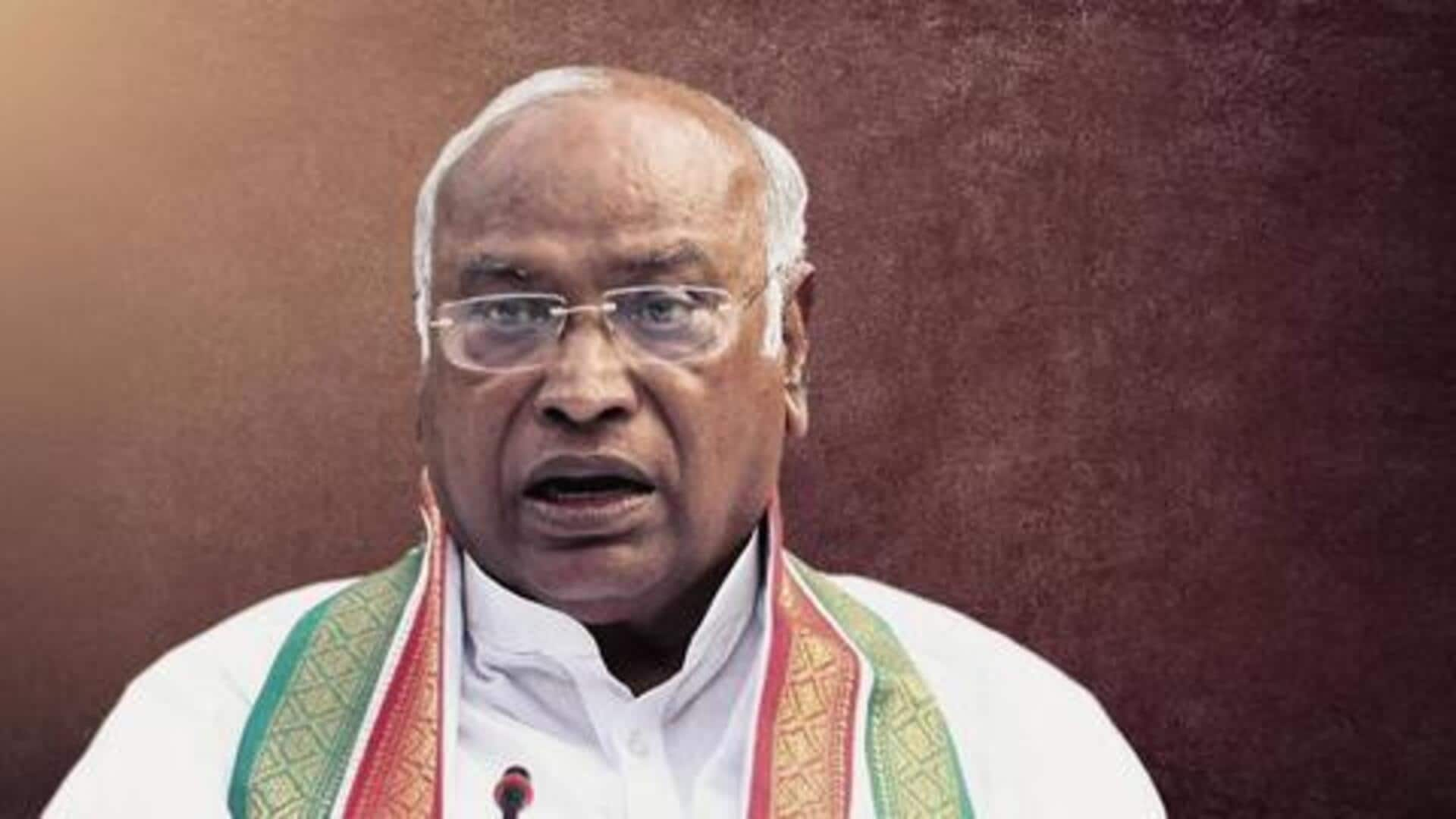
'Flawed selection process...': Congress on NHRC panel chief appointment
What's the story
Congress leaders Rahul Gandhi and Mallikarjun Kharge have expressed their dissent against the recent appointment of the National Human Rights Commission (NHRC) chairperson and members.
They claim the selection process was "flawed" and "pre-determined," without mutual consultation and consensus.
The leaders had suggested Justice Rohinton Fali Nariman and Justice Kuttiyil Mathew Joseph for the chairperson position, but former Supreme Court judge V Ramasubramanian was appointed instead.
Diversity concerns
Congress leaders criticize lack of diversity in NHRC appointments
In a dissent note, Gandhi and Kharge slammed the selection process for ignoring regional, religious, and caste balance.
They labeled the government's stance as "dismissive."
The leaders had suggested Justice S Muralidhar and Justice Akil Abdulhamid Qureshi for NHRC member posts for their "exemplary track records in upholding human rights."
Announcement
NHRC announces new chairperson and members
The NHRC chairperson post had remained vacant since June 1, after Justice (retd) Arun Kumar Mishra's tenure ended.
On December 18, a high-powered committee headed by Prime Minister Narendra Modi met to choose the new NHRC chairperson.
The committee comprises the Lok Sabha Speaker, home minister, leaders of opposition in both houses of Parliament, and the deputy chairperson of Rajya Sabha, among others.
Selection criticism
Congress leaders argue against 'pre-determined' selection process
Gandhi and Kharge's dissent note stressed that "the selection process adopted by the committee was fundamentally flawed."
They claimed it was a "pre-determined exercise" that overlooked crucial mutual consultation and consensus, "essential in such matters."
The note added that this method undermines fairness and impartiality principles critical to the Selection Committee's credibility.
Diversity emphasis
Congress leaders stress on diversity for NHRC's effectiveness
The Congress leaders emphasized that NHRC's efficacy is contingent upon its inclusiveness and representativeness.
They said diverse leadership is essential to tackle challenges faced by marginalized communities.
Their suggested candidates were recognized for their dedication to constitutional values and representation of India's pluralistic society.
The dissent note ended by condemning the majority of the Selection Committee's "dismissive approach" toward diversity considerations.